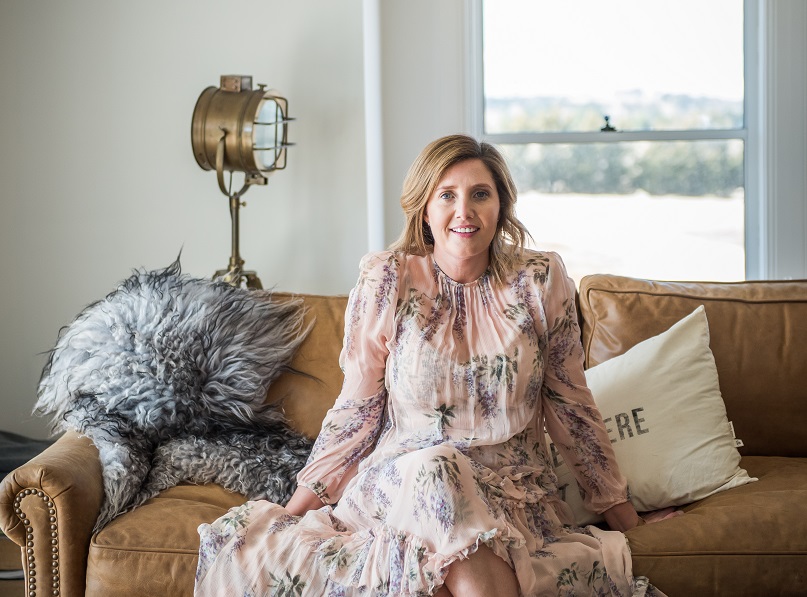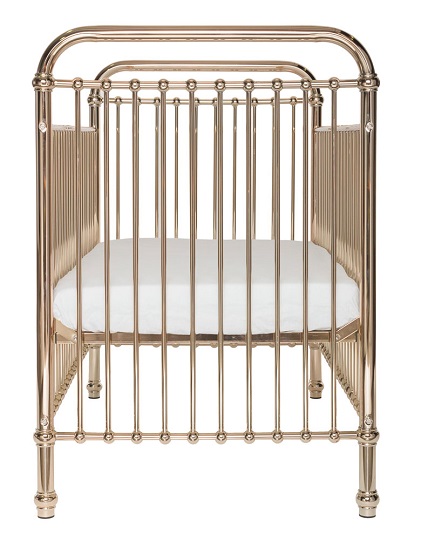The surprising backstory of the Aussie business on Serena Williams’ Instagram

World-famous tennis champion Serena Williams showed off her new baby’s nursery on Instagram last week, including an eye-catching rose gold cot made by Australian e-commerce business Incy Interiors.
Immediately, founder Kristy Withers’ phone started pinging with Instagram mentions and customer queries came flooding into her inbox.
“It’s been crazy ever since. There are so many opportunities coming at us. I had a call at 7am this morning with one of the Shark Tank judges in the US who is interested in doing something us,” she tells Internet Retailing.
Withers was expecting the publicity spike to occur at some point – she had gifted the cot to Williams and her husband, Reddit co-founder Alexis Ohanian, through a publicist in the US – but she still had to bring in an extra pair of hands to assist with customer service.
Rapid growth can be a challenge for small businesses, which often are not be equipped to handle a sudden influx of orders.
After KeepCup was featured in ABC’s War on Waste documentary earlier this year, the reusable coffee cup company saw a nearly 700 per cent spike in sales enquiries.
KeepCup’s founder and CEO, Abigail Forsyth, told Internet Retailing that “it’s hard to know what to attack first, to not answer the phone and get the order out the door, or to answer the phone…”
But even though Incy Interiors employs only nine people, Withers says the company hasn’t experienced the typical growing pains since being featured on Williams’ Instagram.
This is partly due to Withers’ background in corporate marketing, which led her to structure the business “properly” from the beginning. Indeed, the the story of how Withers started Incy Interiors is just as remarkable as its recent celebrity endorsement.

The Ellie Cot, which Serene Williams posted on Instagram.
Leaving the corporate world behind
On the Incy Interiors website, Withers writes that she started the company in 2010 after spending months looking for a stylish bed for her young son and coming up empty.
It’s a classic tale of finding a gap in the market and deciding to fill it herself. But it’s not quite the whole story.
At the time, Withers was a marketing manager at Ebay Australia, putting in 80 hour weeks and going on international business trips every six weeks. It was a demanding role that was even harder after she became a parent.
Meanwhile, Withers says she was always interested in interior design and knew the Australian market for children’s furniture was far behind the US and UK.
She was also conducting market research for Ebay that showed baby, online and homewares were the three highest growth areas of retail spending.
“This was right after the global financial crisis, so people were entertaining more at home. That’s when Bunnings came about too. Also, women were now having children later, and they had more disposable income to transfer to their children,” she says.
Combined with her own experience shopping for her son, Withers knew there was unmet demand for stylish children’s furniture, but she wasn’t exactly planning to start her own business.
Indeed, she says she may never have acted on the idea if she hadn’t been given the awful task of informing her 40-person marketing team that Ebay was not going to renew their contracts.
“I found out one day that I had to let my entire team go the very next day. I couldn’t do it. I just felt I wasn’t cut out for corporate life. I wasn’t cut-throat enough,” she says.
So Withers resigned from Ebay and finally got the push she needed to start Incy Interiors.
Launching Incy Interiors “properly”
From the beginning, Withers says she wanted to do things “properly” at Incy.
She reached out to some of her former Ebay colleagues – many of whom had gone on to start e-commerce consultancies – for help building a website, and developed a 12-month marketing strategy to build brand awareness through mum-and-baby blogs.
“We launched with a big bang. The day we launched we were contacted by 10 stores asking to stock our products,” she says. “I had to employ someone that first week to manage the influx of queries from stockists who saw something new in the market.”
Withers says the company was growing over 1,000 per cent year-on-year in those first few years, and it was difficult to keep up with demand.
“Things started to fall apart. Our system wasn’t good enough. We were overselling products and our logistics were a mess. It all started to go because we were just keep up with taking orders and replying to emails,” she says.
Withers purposely slowed the company’s growth and created systems that could handle a rapid increase in sales.
This has proved to be a crucial investment, since Incy Interiors has experienced several periods of intense demand. The company’s products have not only been featured on Williams’ Instagram, but also on The Block.
“Now, we could realistically triple our growth and still keep up,” Withers says.
Surviving discount culture
Over the years, Withers has expanded Incy’s range to include bookcases, chairs, linens and other bedroom accessories and opened a bricks-and-mortar store in Westfield’s Chatswood shopping centre.
She has also launched online in 10 overseas markets, including the US, Canada, UK and United Arab Emirates.
While 70 per cent of Incy Interiors’ sales still occur in Australia, Withers says she has essentially tapped out the local market. Domestic growth sits at around four per cent year-on-year, while international growth remains high at 184 per cent.
According to Withers, a mix of increased competition and changes to the retail environment have made it harder to do business in Australia.
“Up to 18 months ago, we did the same amount of sales every week of the year. I didn’t realise how good that was, it was very stable and easy to manage. Now our sales fluctuate wildly week-to-week. The retail market has really changed,” she says.
The biggest culprit is discounting, according to Withers.
While Incy Interiors rarely held sales in its first years of doing business, the company now offers some form of discount at least once a month. Withers says this is necessary to keep customers.
“It’s just become standard. People won’t buy anything for full price anymore. The majority of our customer service emails are people asking when the next sale is,” she says.
Paying it forward
Despite the challenges, Withers knows how good she has it. Many startups never achieve her level of success, which is why the former corporate marketing manager recently started a program to pay it forward.
In addition to formally mentoring three people – and “handing out advice randomly”, Withers jokes – she is setting aside floor space at Incy’s Chatswood store for emerging businesses to display their products for free.
The first startup – a wallpaper company – will be on display this Friday, followed by eight other small businesses.
“It is really hard to start a business. I get contacted each week by two to three people asking for advice. I’m lucky that I have a corporate background,” says Withers.
Comment Manually
You must be logged in to post a comment.

No comments